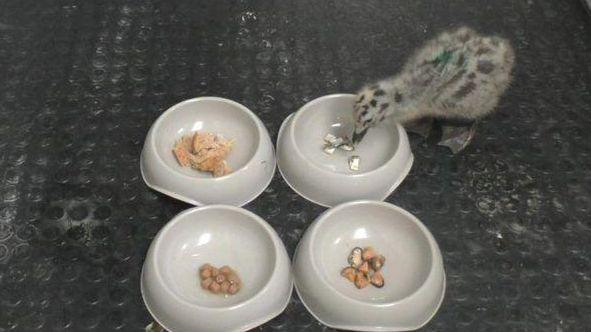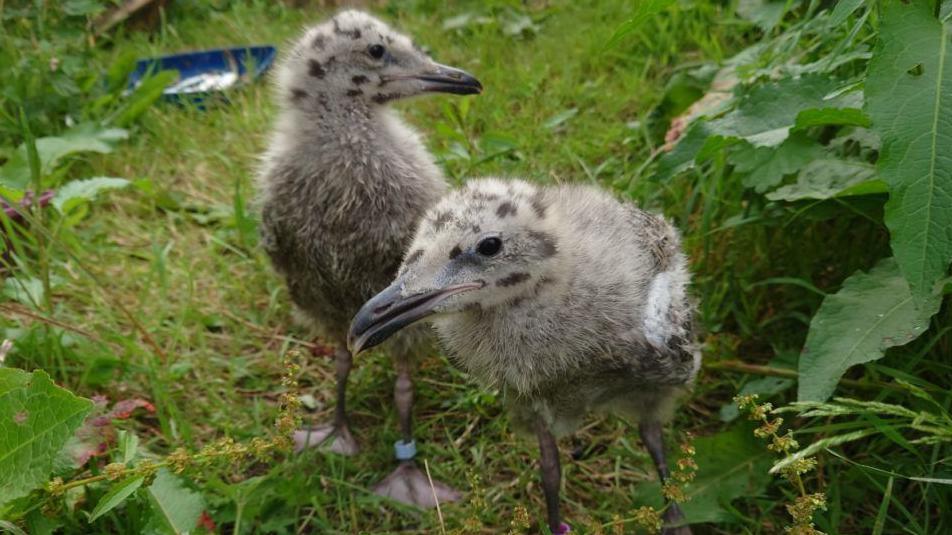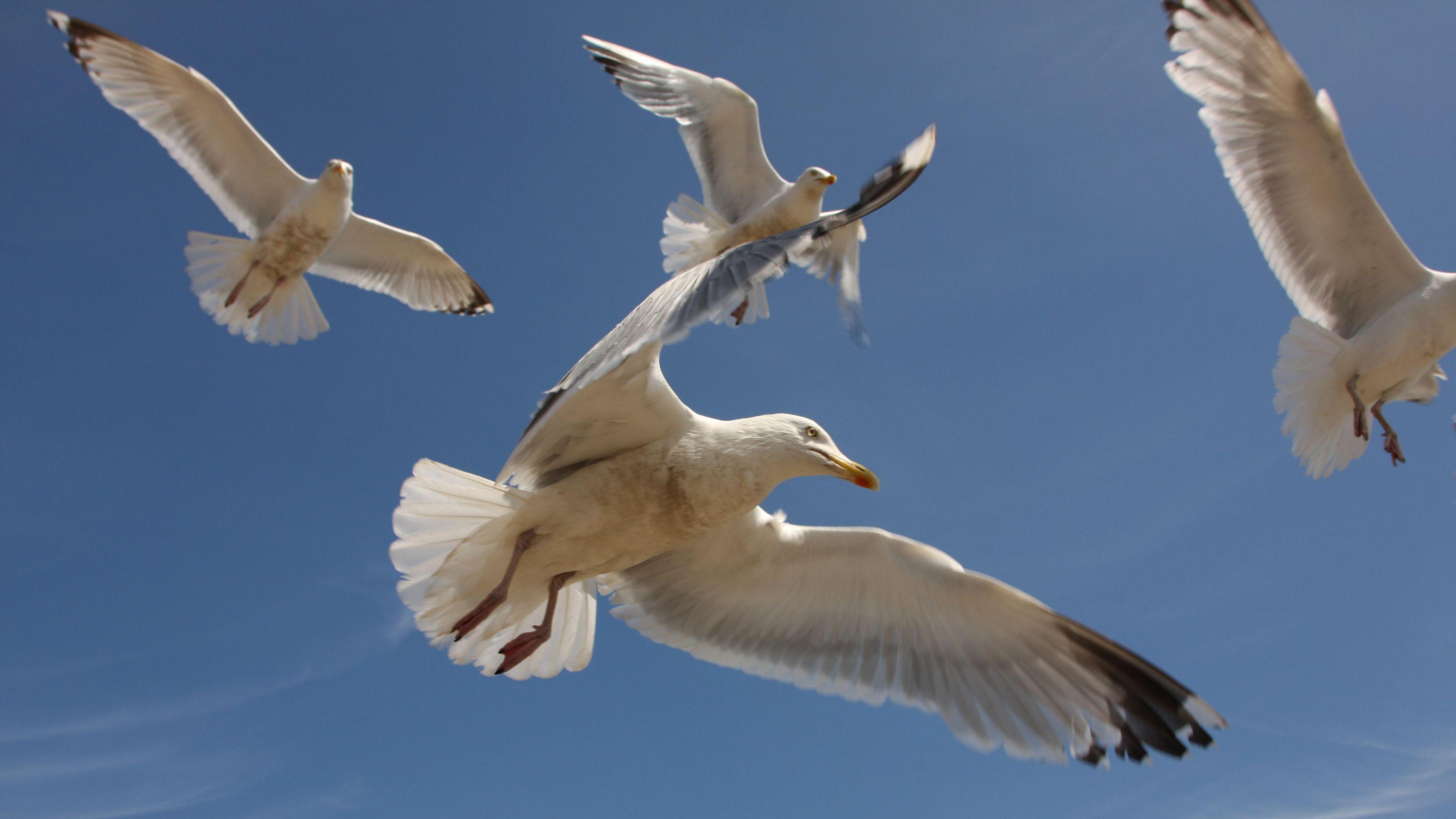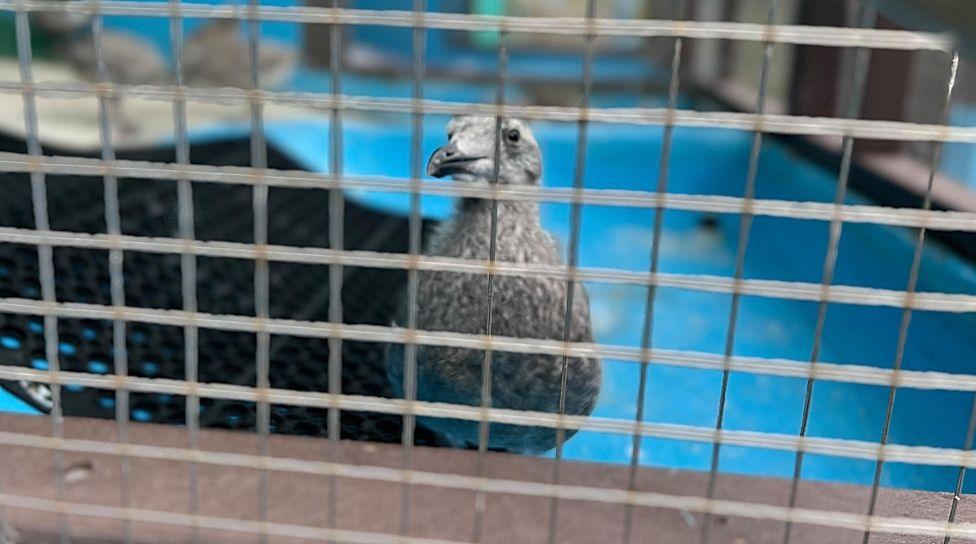Study shows urban seagull chicks still prefer fish

Exeter University said 27 gull chicks took part in the study
- Published
Seagull chicks raised on an urban diet still prefer seafood, new research shows.
Scientists from the University of Exeter studied 27 herring gull chicks which had been rescued after falling off roofs in towns across Cornwall.
As part of the research, the gull chicks were given either a marine diet consisting mainly of fish and mussels or an urban diet, which contained mostly bread and cat food.
The chicks were offered a choice of all four foods every few days with all gulls "strongly" favouring fish, the university said.

The chicks were raised in captivity before being released
Lead author Emma Inzani, from the Centre for Ecology and Conservation on Exeter’s Penryn Campus in Cornwall, said results suggested the chicks might be "unlikely to seek out urban foods as adults" - even when reared on an urban diet.
“Human-associated foods are often both reliably present and easy to obtain – but when fish is available they clearly prefer it," Ms Inzani said.
She said a combination of reduced fish stocks in UK waters, coupled with abundant and easy access to food waste in towns, may mean it is not as profitable for gulls to spend a lot of energy going out to sea to forage.
The chicks, which were raised in captivity before being released, had access to food all day, the university said.
It said half of the chicks had urban food for 80% of the day and seafood for 20%, while the other half of the chicks received the opposite diet.
Senior author Dr Neeltje Boogert said animals can exploit urban areas for human food waste.
“However, this does not necessarily mean they’re thriving or that they prefer this food, rather than making the best of a bad situation," Dr Boogert said.
The study was funded by the Natural Environment Research Council and the Royal Society.
Follow BBC Cornwall on X (formerly Twitter), external, Facebook, external and Instagram, external. Send your story ideas to spotlight@bbc.co.uk, external.
Related topics
- Published25 June 2024

- Published5 July 2024

- Published27 June 2024
